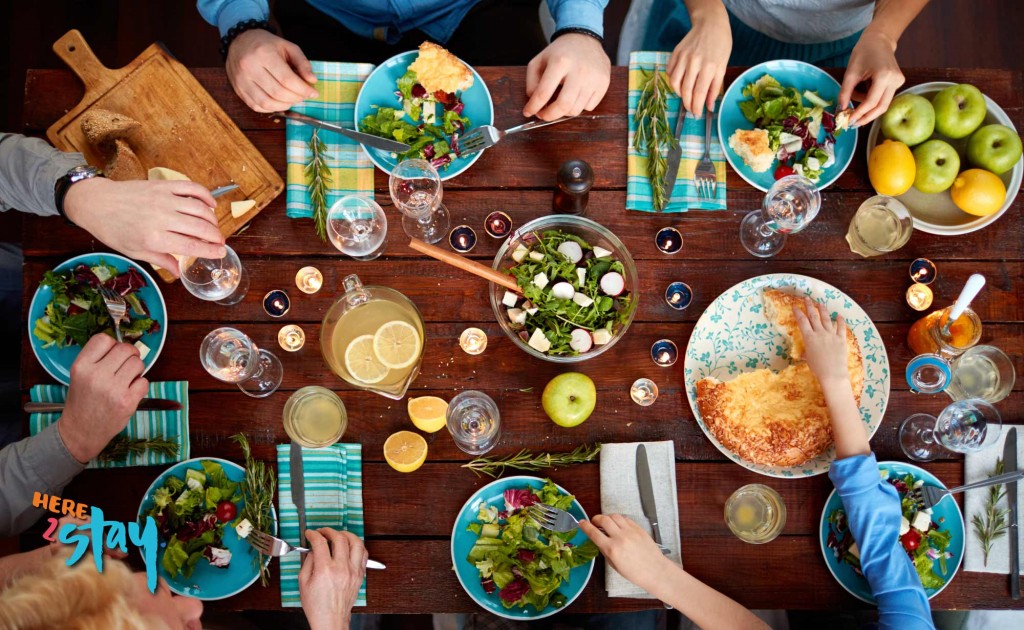Family/household nurture
Families (households) are the primary
faith communities for all ages …
Mark DeVries writes in his book Family-Based Youth Ministry:
Almost with that exception, those young people who are growing in their faith as adults were teenagers who fit into one of two categories;
- they came from families where Christian growth was modelled in at least one of their parents, or
- they had developed significant connections with an extended family of adults within the church.
How often they attended youth events (including Sunday School and discipleship groups) was not a good predictor of which teens would, and which would not, grow toward Christian adulthood.
The family is the most important group of people mentioned in the Bible. While acknowledging that families come in different shapes today, consider some difficult perspectives. Mark Griffiths in his book, One Generation From Extinction, helps to bring this back into focus in our modern context. He writes:
Often we are dissatisfied with our children’s ministry. We know we should do more; we’re just not sure what. We’re trying to take our ministry forward, but we’re not sure where to. I propose that 21st-century children’s work should be in three dimensions, and that to miss any one of these dimensions is to seriously jeopardise the impact of your ministry to this rising generation.
The first two of these dimensions are outlined below. There are two Hebrews words used throughout the Old Testament that are translated as ‘family’. One describes a ‘household of faith’, the other refers to the larger ‘community of faith’. All children belong to a ‘household’ and it is this close communal setting that has a major influence on their development as human beings.
DIMENSION ONE: BAYITH (pronounced BAH’-YITH)
The first is the word Bayith. This communicates the concept of what we would now call the immediate family – parents and children together under one roof. We encounter this word in the instructions for the Passover meal (Exodus 12:21-28)
DIMENSION 2: MISHPACHAH (pronounced MISH-PAW-KHAW)
This word carries within it the sense of tribe, clan or community; it is in effect a bond of kinship uniting people to a common cause. Deuteronomy 6:5-7 and Deuteronomy 11:18-19, when instructions are given for the passing on of the belief system from one generation to the next, are written in the context of mishpachah’.
Our journey with all ages helping to see Christ formed in them must involve active participation within the bayith and mishpachah settings.
Principles and practical ideas to inspire you as you implement this formational experience into your long term plan …
Principle
Families (households) are the “primary faith communities” for all ages, especially children in their formative years and the household needs to be supported strongly in this role.
Why is FAMILY so important in the faith formation process? Here are 3 reasons….
1 God’s design is family
2 God’s command is family
3 God’s strategy is family.
Watch this short video for a brief explanation…
Top 10 reasons why…
1. A place where we first encounter love.
2. Where foundations for life are built.
3. For many children family is the first culture they experience, if the culture is not one that encourages faith forming it can be difficult to form a faith until they are much older.
4. A strong family unit doesn’t falter on the GREY of life; it brings safety and security to explore the GREY together.
5. It is where we are the truest/most unmasked form of ourselves.
6. Belonging – I am known here/security – I am safe here/accountability – I have my responsibility to others/service – I am served and have to serve others.
7. Households of faith is God’s idea of protection and nurture while we are growing strong.
8. A family needs a safe environment and refuge to come home to each day, when it is a strong foundation to a person’s life.
9. Family is a soft place to fall, where we can experience and learn without judgement.
10. It is a network that everyone is a part of and needs to play a part in whatever family unit they find themselves in.
Practical Ideas
Spiritual formation in the home
- “Boxes for Baptismal Families”- when families bring children for Baptism have a special box prepared including a Bible; certificate and other items signifying the importance of Baptism.
- www.DriveFaithHome.com provide great tools for families to have important conversations. see link
- Parents baptising their own children.
- Ministry to fathers so that the rest if the household will follow.
- Max7 has great resources for FREE for spiritual formation. see link
Daily parenting
- Kisses and Hugs.
- Meals together daily.
- Bedtime stories.
- Bedtime prayers.
- Morning Devotions.
- Rubbing fingers.
- Pray before the walk to school.
- Sing a personal written lullaby before bed.
- Nightly Blessing.
- Grace at meals.
- Debrief from the day over dinner.
- Best and Worst part of your day – discussion over meal time.
- Play board games/puzzles with young children.
- Massage / Shoulder rub.
Weekly Parenting
- Homework @ the bench.
- Taco Tuesday.
- Kids choose what we have for dinner.
- Park / Beach outing.
- Saturday night board game.
- Pyjamas Day.
- Tea party Tuesday.
- Monday Night Devotions.
- Friday night movie night/ dinner in front of the TV.
- Dinner and movie night OUT.
- BBQ Breakfast.
- Prayer for our sponsor child.
- Pancakes Saturday morning.
- Friday night sport watching.
Parenting with the end in mind
- Family camp/weekend away.
- Cooking together.
- Christmas morning family time.
- Lunch together to celebrate end of school year.
- Annual extended family holiday.
- “You’re a star” plate to celebrate achievement.
- Theme park adventure once a year.
- Pizza @ the lighthouse on the shortest or longest day.
- Parent / child dates.
- BIG family Christmas.
- Camping at Christmas/ Easter / Long weekend.
- Scrapbook memories / celebrate milestones.
- School rewards – coffee/hot chocolate after school.
- Pupil free days – make them special days with the family.
- Special Dinner on report night.
- Birthday treasure hunts.
- Homemade advent calendars at Christmas.
- Passover with friends and family (food, candles etc).
- Eat whatever you want on your birthday.
- Favourite dinner on birthday.
- Night before Christmas – read a particular story.
- Christmas light hunting around the streets.
- Camping family recipes.
- Road Trips.
Support and Empowering the family
- Provide interest groups for parents and their kids. Eg. “Dads and Lads Fishing Weekend”.
- Parishioners can write a brief message of encouragement for the child and family; a significant Bible verse; or a brief statement about what it means to ‘walk with Jesus’.
- Reclaiming the family table. Give very simple and practical tips for how to build family times around a meal table.
- Help families develop a spiritual plan. Using the 10 pillars resources assess where the gaps are and how they can be more intentional in certain areas.
- Bath time, car time, meal time – life app each month. A question each week that kids ask their parents.
- A bag of prayer points on the family table – very young children can pick out the prayers.
- Stop asking adults to be so busy in the Church so they are free to be together as a family.
- Families listening to online radio stations with good Christian content.
- Educate parents on technology/media issues.
- Run a “Parenting Course” at the same time as Kids Club/ Youth Group. Have child-minding for younger children.
- Organise “Parents Dinner” Nights, with child-minding; valet parking etc. Have guest speakers and topics for conversations about parenting.( Include nights for Single parents and Grandparents who have the care of children).
- Max7 have created a wonderful toolkit with lots of ideas for discipleship for parents and families. See Link
- How substance abuse impacts the whole family. See Link
Marriage Enrichment
- Marriage courses, Parenting courses e.g. Focus on the Family. See link
- Organise “Parents Date” Nights, with child-minding; valet parking, special meal.
Serving
- Encourage families to serve together at church, in the community and overseas mission.
Community
- Formation can occur during the week and be celebrated together with God’s family on Sundays. e.g. Faith formation learning exchange. See Link
- Changing a culture of isolating ourselves and our families, encourage open homes – creating space where the family can play together.
- Families mentoring other families to implement some of these strategies. Cluster families together to do family to family support.
- Messy Church creates a space where families can worship, play, learn and eat together. E.g. Messy Church. See Link
- Each household in your church family is given an A3 sized piece of card. Household members create a montage/collage made up of photos, pictures and small physical pieces of objects that reflect the interests and story of this ‘family’. Don’t forget to add the name of your family. Ideally, these could be framed with simple frames and hung on a space on your church walls. Your church meeting space then takes on a ‘living room’ feeling for your wider family.
- “Carpark Ministry”: As kids come for Kids Club, provide coffee and conversation for parents when they come to do the ‘pick up’.
Helpful Links to Excellent Resources for this Pillar:
ARTICLE: Who Is Responsible for Children’s Faith Formation: Through Barna’s other research, we see that parents—especially engaged Christian parents—are eager for their children to develop a lasting faith, yet many lack clarity on how to disciple their children well in a decidedly post-Christian context. See Link
RESEARCH: What makes for a spiritually Vibrant Household – Latest Research from George Barna: See Link
RESOURCE: Prayer Adventure Map with Kids and Parents: See Link
Homefront Magazine: HomeFront is a monthly magazine and parenting curriculum combined into one – based on the 10 Environments highlighted in the book Spiritual Parenting by Dr. Michelle Anthony. It is filled with recipes, craft ideas, stories, and more to inspire, equip, and support you on your parenting journey. See Link
VIDEO:”Engaging Today’s Prodigal” – Carol Barrier delivers a workshop on Prodigals to a group of Pastors at the 2012 Moody Pastors Conference. Link












